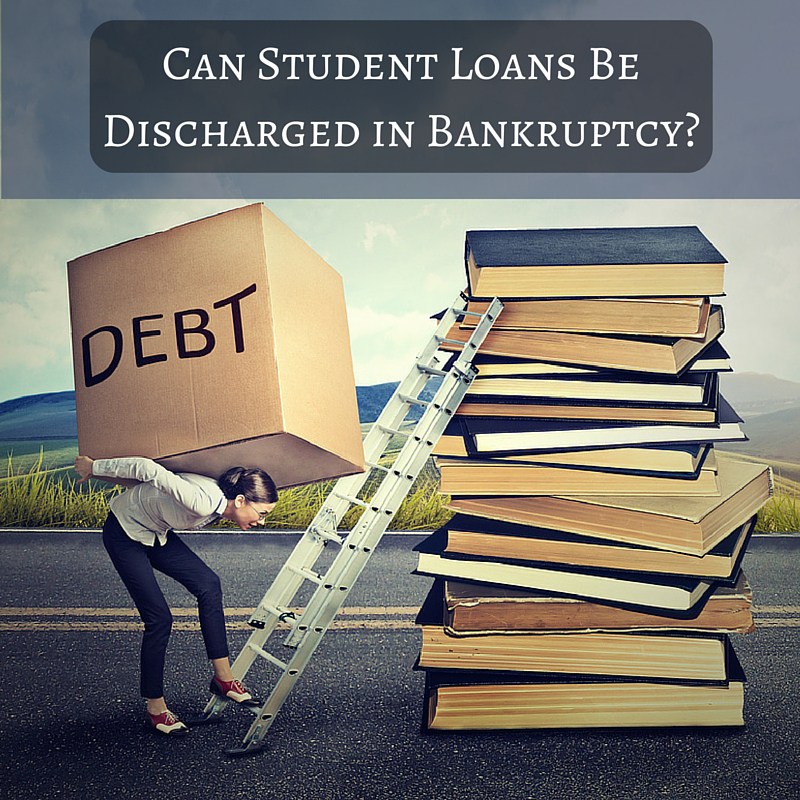Can Student Loans Be Discharged in Bankruptcy?

According to the Office of the United States Department of Education Federal Student Aid, as much as 10 percent of consumers defaulted on student loans in 2011, up almost three percent from 2007. A student loan is considered in default when you have not made payments for 270 days and have made no arrangements with the lender to repay the loan.
In fact, student loans are one of the top ten reasons why many people seek bankruptcy protection, accounting for as much as one percent of all bankruptcies in the United States.
In most cases, federal student loan debt may not be discharged in bankruptcy proceedings, although bankruptcy can eliminate other debt that would allow you to pay your student loans. However, their programs that can help with your student loans, a nursing student loan forgiveness program could be an example of this.
However, there are some exceptions in bankruptcy laws that may make it possible to eliminate student loan debt through bankruptcy.
Undue Hardship
One way that student loans may be discharged through bankruptcy is the Undue Hardship Exception. If you can prove to the courts that paying your loans would cause an undue hardship, you may be able to discharge them through your bankruptcy proceedings.
There are several tests used to determine whether requiring you to pay your loans will present an undue hardship:
- The Brunner Test – The Brunner Test requires you to meet three standards – poverty, persistence and good faith. If your income and expenses demonstrate you cannot maintain a normal standard of living if you are required to pay your loans, if your current financial situation is likely to continue and if you have made a good faith effort to try to pay your loans, the courts may agree to discharge the student debt through bankruptcy.
- Totality of Circumstances Test – The court reviews all relevant circumstances to determine if requiring you to pay the student loans will present an undue hardship for you and your family.
- Health Education Assistance Loans (HEAL) – if the loan came due more than seven years ago and repayment would present a significant burden on your life, the court may discharge them in bankruptcy.
There may be other tests used by the courts as well to determine whether requiring repayment of the loans would place undue hardship. Most courts look at the undue hardship tests as “all or nothing.” In other words, if you do not meet all the criteria, you do not qualify to have the loans discharged in bankruptcy.
Process for Discharging Student Loans
In order to request that your student loans be discharged in bankruptcy, a formal complaint must be filed in federal bankruptcy court. It is then your responsibility to prove to the court that payment of your loans would cause an undue hardship.
It is possible that you may be able to defend non-payment of your student loan if you can demonstrate unfair or deceptive practices on the part of the school, fraud or breach of contract. If you attended a for-profit school trade school, you may stand a better chance of having your loans discharged.
If you or a loved one are facing student loan debt that you are unable to repay, bankruptcy may be an option for you. Contact the Law Offices of Georgette Miller and Associates today to learn what steps you should take to begin your new financial start. You can contact us through the simple online form or call us at 1-800-Lundy Law.



